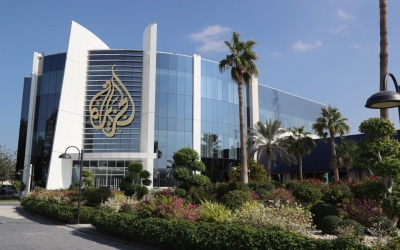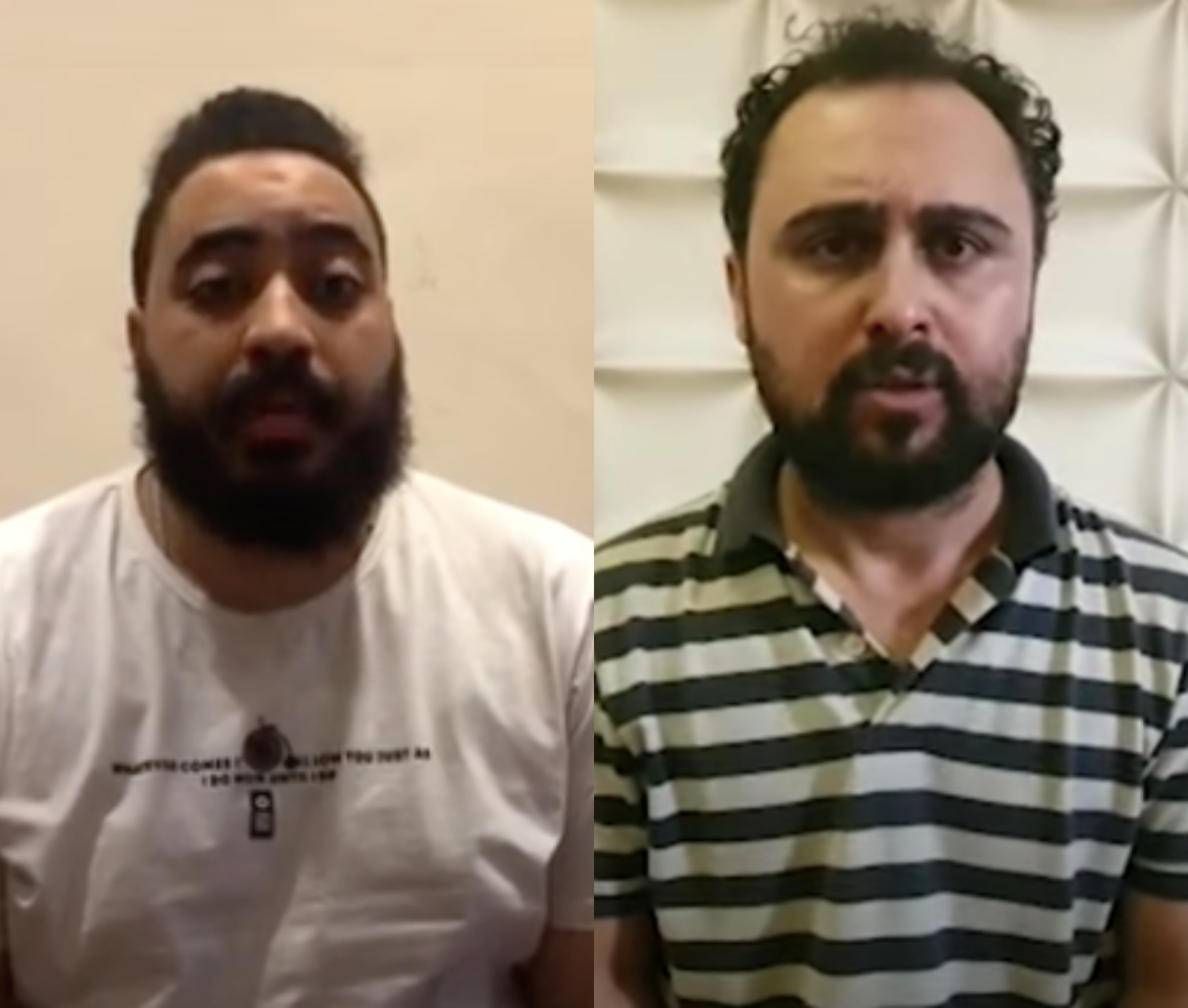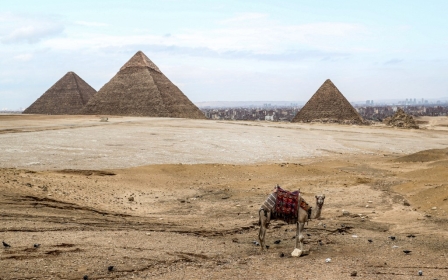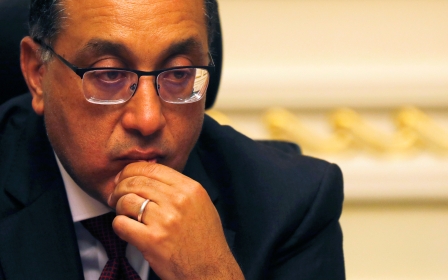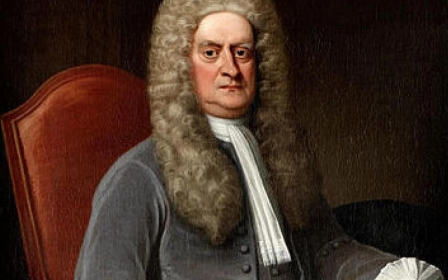Egypt rights advocates denounce ‘unlawful’ pre-trial airing of journalist's confessions
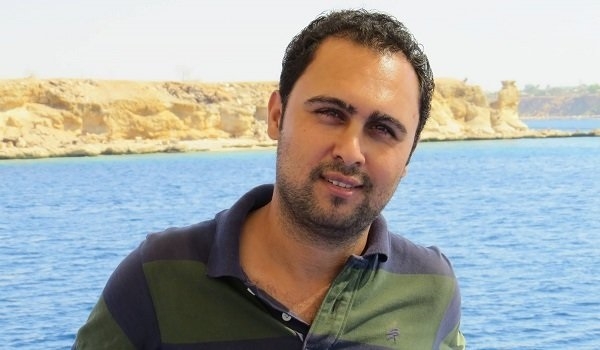
Egyptian rights advocates have condemned the “unlawful” broadcasting of purported confessions by a journalist who appeared in a video Friday saying he produced content for the Qatari-owned Al Jazeera network.
Sameh Hanein has been detained since 15 May and has since been accused of a range of charges, including “aiding a terrorist group”, “misusing social media” and “publishing false news.”
The interior ministry said he had been added to case number 586 for the year 2020, where several other journalists and exiled Egyptian opposition figures are charged with collaborating to produce content deemed hostile to the Egyptian state.
On Friday, a number of pro-government media channels broadcast a video clip in which Hanein confessed to his alleged crimes, including receiving $150,000 payment from the Al Jazeera network to produce documentary films, and communicating with Muslim Brotherhood leaders in Turkey and Qatar for that purpose.
Another defendant in the case, studio owner Ahmed Maher Ezzat, also appeared in a recorded video confession publicised in state-owned media.
The clips have triggered many condemnations by rights groups and lawyers, who said that Egyptian law prohibits the broadcasting of confessions.
Hussein Bayoumi, Egypt researcher at Amnesty International, said that Hanein and Ezzat were not granted legal protection or access to a lawyer prior to recording the videos. They were also at risk of torture and ill-treatment, he told Middle East Eye.
"The broadcasting of confessions under duress or coerced confessions is a serious violation of a defendant's right to fair trial and due process," he said.
"The Egyptian judicial authorities should not admit these confessions as evidence, and instead should be investigating the conditions under which these videos were recorded and leaked to the press and hold those responsible accountable."
Egyptian authorities under the government of President Abdel Fattah el-Sisi have routinely resorted to filming confessions by defendants who are under custody, including foreign nationals, but many of those defendants were later acquitted.
Some of those who said their confessions were extracted under torture were executed.
“It is unlawful to publish the videos while they are still under investigation by the prosecution,” Ahmed Attar, a human rights researcher told MEE.
“They have no right to brand them terrorists or traitors without any shred of evidence or a court ruling."
Meanwhile, Negad al-Boray, a human rights lawyer, said that airing the confessions is punishable under articles 75, 187 and 310 of Egypt’s penal code, and that Hanein’s lawyers have a right to sue the newspapers that published the video.
Journalists and rights advocates launched the social media hashtag “Sameh Hanein is not a terrorist” to protest his detention.
Hanein, a Coptic Christian, has worked for several media outlets including the pro-government Extra News, where he served as the editor in chief of the Kalam el-Nas talk show.
Other defendants in the case include Haitham Hassan, a journalist in the pro-government Al-Masry Al-Youm newspaper, and cinema producer Moataz Abdel Wahab.
Middle East Eye delivers independent and unrivalled coverage and analysis of the Middle East, North Africa and beyond. To learn more about republishing this content and the associated fees, please fill out this form. More about MEE can be found here.


